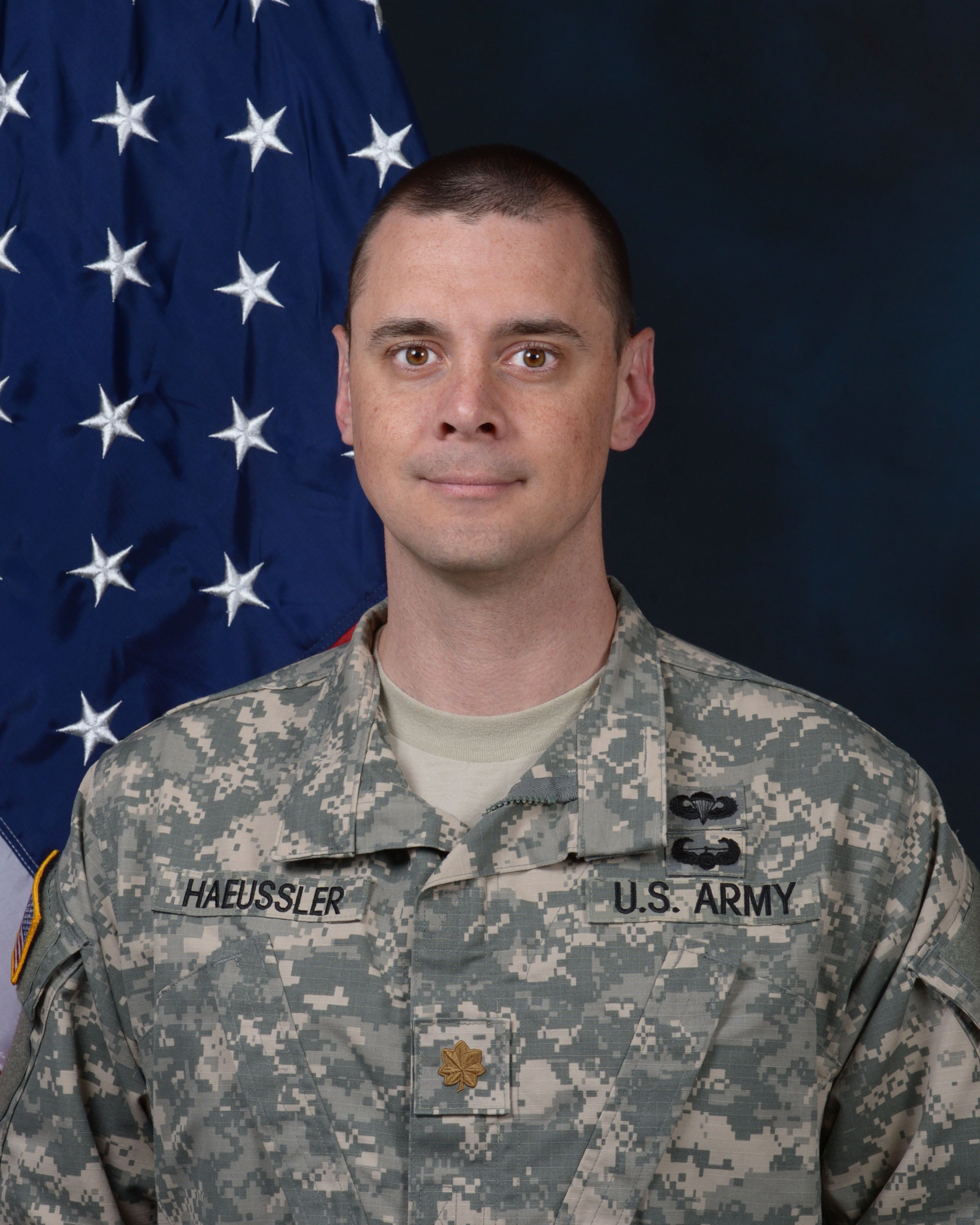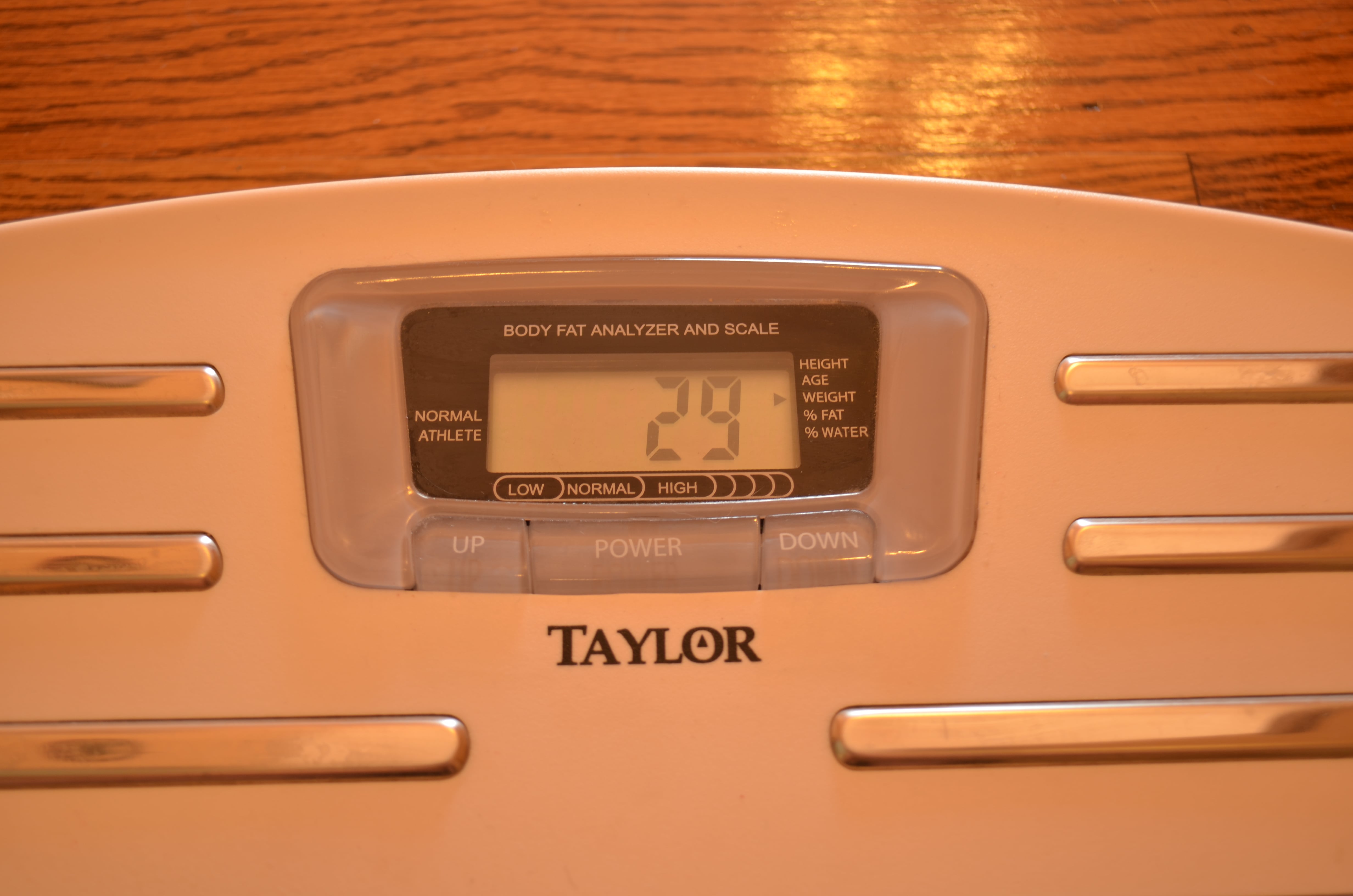[Editor's note: The following is a commentary by Maj. Ric Haeussler, commander of the U.S. Student Detachment at Command and General Staff School.]
We are a smart and powerful nation with an incredibly advanced and capable Army. Why does that Army practice primitive and imprecise body composition methods with charts and tape measures when the technology exists to be so much better exists?
It is available for pennies on the dollar at any local discount department store in the form of a the body fat analyzing scale. A sizable percentage of soldiers reading this right now probably have possess that technology in their pocket or palm. There is surely an app out there which allows our smart phones to compute body fat; if not, there will be one day.
When there is, it will certainly have the potential to be more accurate than Army Regulation 600-9 methods. With careers, readiness and basic health all at stake, shouldn't we be the best that we can be when it comes to that accuracy?
I am on my third command below battalion level so I have had the displeasure of counseling many soldiers who have not met the expected body composition standard: more than I can recall.
Most were truly overweight and I am not urging any leaders to make exceptions for fat, sorry — sensitivity alarm: "overweight," soldiers.

Maj. Frederic Haeussler
Photo Credit: Courtesy photo
What I am urging is that our leaders stop ignoring technology and admit there are better methods out there, and in cases where these means are readily available, allow leadership to officially use them.
The update to the AR would be short and simple. A period of sampling and testing should be expected and then after our senior leadership evaluates what we have learned, just implement it. Publish a MILPER message immediately to allow the use of whatever approved body fat scale, dunk tank or electronic measuring device is determined as acceptable. In a minority of consideration for separation cases, it is criminal that we have not done so already.
Most soldiers believe the current method of measuring various circumferences and putting them into a height-weight-age formula is flawed. Most leadership when surveyed agrees. While I believe 90 percent of the 50 or more soldiers I counseled on the overweight program were indeed overweight, not all really were. There is a small group I am less than certain about.
A few literally perplexed me as to how they possibly measured too heavy for service. From flagging to adverse career consequences to the time lost as they navigate the military's legal and medical processes, we owe it to them to do better.
I counseled several with heart-felt sincerity to seek legal recourse and fight their recommended discharge at the highest level. It is disheartening for a commander to feel obliged to recommend his soldiers contest the very thing he is administratively required to process.
It is not just speculation that there are better methods out there. The Army Times has addressed the issue on several occasions; not to mention printing many opinion/editorials. In a June, 2015 Army Times piece on initiatives of the new Sergeant Major of the Army, Michelle Tan wrote: "In 2013, Military Times put the tape test to the test by taping 10 active-duty troops stationed in the Pacific Northwest and then putting them in a hydrostatic 'dunk tank', considered among the gold standards for determining actual body fat composition. The results showed not once did the taping match the dunk test results. The tape test was wrong every time, and in nine out of 10 cases, the tape method measured troops' body fat percentages higher — the worst was a 66 percent difference between the scores. The closest was nearly 12 percent off."
How is it possible that information fell on deaf ears? When I read it this summer I wondered 1) how did I miss it in 2013, and 2) how could our leadership not do something about this? The rest of the article, which included the SMA's thoughts and his response, was not particularly encouraging.
We live in a society that has the propensity to re-open cold cases and re-try suspects years later following acquittals or convictions because new technologies and evidence collection techniques now exist. Why are we still using tape measures, the erroneous human eye, and pencil and paper when most of us keep a super-computer on our night-stand or in our pocket capable of so much more precision?

Many commercial off-the-shelf products measure body fat such as this scale that combines data such as height, age, sex, weight, and sends a tiny electrical impulse through the user's bare feet to compute body fat. Although not approved for official Army body fat measurement, such devices are used as alternatives to the official tape measure and AR 600-9 method.
Photo Credit: Courtesy Maj. Ric Haeussler
If using those super-computers is out of the question, then why is it not allowable to cough up a few dollars of unit funds, spend a fraction of what an average high-end medical scale costs, and purchase something at the local government-approved store for each company or battalion?
When a soldier fails the tape measure test this would be an acceptable judgement alternative to the overweight program and elimination. If this alternative, whatever it may be, comes to the same conclusion as the tape test, then it only reinforces what leadership says about health to the soldier and that they care to get things right before initiating a path to elimination.
I believe the tape test, much like a scale and associated height-weight table, should be a screening device, not a punitive and potentially career-ending one. It is too imperfect, it has too great a margin of error, and we have too many better alternatives out there readily accessible and easily portable.
Our doctors don’t take body temperatures with analog thermometers anymore. They use huge all-in-one rolling computers in hospitals; or, in the field, mini digital ones (with microchips in them). If we harness such computing power for the simple act of measuring temperature, why can’t we also do so for the much more delicate, complex and soldierly life-changing act of measuring a soldier's body composition?
There is no pass or fail for how close you are to 98.6 degrees. Yet there is for body fat — one with serious career-ending repercussions. Why can't we take it just as seriously? We have the technology. We choose to ignore it. That is senseless.




